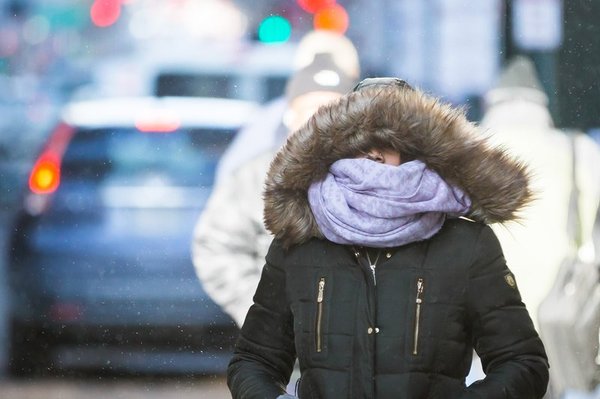On top of a snowstorm forecasted for Monday, a blast of Arctic air is headed to the area Wednesday and will continue to bring frigid temperatures through the following weekend. Meteorologists are predicting up to a week with highs between 25 and 35 degrees and lows in the teens.
While cold snaps are normal this time of year, the long duration of this upcoming chill is unusual and will put more stress on the city's water, electric and gas services — causing possible blackouts and water main bursts.
MORE: Arctic air blast to bring frigid weather to Philly region in early 2025
Here's how Philly's utility companies are preparing and how to keep your home safe until the weather gets warmer later in the month.
Water
Winter is already the most common time of year for water main breaks, and pipes get particularly strained when temperatures are below freezing for 72 straight hours or more, said Brian Rademaekers, a public information officer for the Philadelphia Water Department.
"When you get those really cold snaps, there's just an inevitable impact on the pipes themselves," he said. "And what actually happens is the river water gets so cold that you have cold from the outside, but you also have cold on the inside of the pipe, so that just makes them much more brittle. Once we get into a full-on cold snap, you're going to see stress on water infrastructure."
PWD recommends disconnecting hoses and turning off the outdoor water supply. Residents should wrap or insulate pipes in unheated areas and run a slow drip from faucets overnight during extremely cold weather to prevent pipe freezes and bursts. Rademaekers said to report water main breaks as soon as possible, and PWD typically gets them fixed within eight hours.
"If you do get frozen pipes, one of the best things to do is check with a neighbor because if they also don't have water, that could be a water main issue and not a frozen pipe issue," Rademaekers said.
Electric
The cold temperatures shouldn't impact PECO's power lines directly, said spokesperson Izamarie Camacho, but it will likely mean higher electric use across the city. The energy company is normally staffed 24/7 in case of outages, and it will add additional crews if necessary during extreme weather events such as this.
In the case of an outage, PECO said generators should only be used outside, not indoors or in an attached garage, and portable generators should not be directly connected to the home's wiring. Camacho also suggested keeping cellphones and other devices charged in case of emergency.
"We definitely recommend to have a supply of bottled water and easy-to-prepare, non-perishable foods available, and have a flashlight with fresh batteries on each floor of your home," Camacho said. "That's something that we typically don't think about, but at the time it's really important."
To save money on electric bills during extended cold periods, PECO recommends closing vents to unused areas of the home and turning thermostats back 10 to 15 degrees when you're asleep or out of the house. Curtains should be open during the day to take advantage of the sun's heat and closed at night for insulation, and windows should be locked to prevent drafts.
PECO customers with incomes below 250% of the Federal Poverty Level are protected from service disconnections from Dec. 1 through March 31. Pennsylvania also offers a Low Income Home Energy Assistance Program with cash grants for heating bills.
Gas
The Philadelphia Gas Works (PGW) said it feels fully prepared for the incoming Arctic air. Ideal settings for gas thermostats are 68 degrees when people are home and 58 degrees if the house is vacant for more than a few hours, the company said.
To trap heat inside, PGW suggests adding caulking and weather stripping around doors and windows and installing a door sweep. Adding a rug or installing carpeting on bare floors can also help retain warmth.
For safety, gas heaters should be checked annually and houses should have a working carbon monoxide detector in the case of a leak. Finally, while it can be nice to let the oven warm up the kitchen while cooking dinner, PGW cautioned against relying on it as a heat source.
Staying Informed
Philadelphia activated a Code Blue on Thursday, which adds emergency shelters and housing resources for the city's homeless population, and it will be in place until further notice. Residents can also follow the city's Office of Emergency Management (OEM) and Office of Homeless Services for updates on any additional services in place.
OEM has a winter weather guide with additional information on creating a cold readiness kit, keeping pets warm and safely using a portable heater, among other tips.

